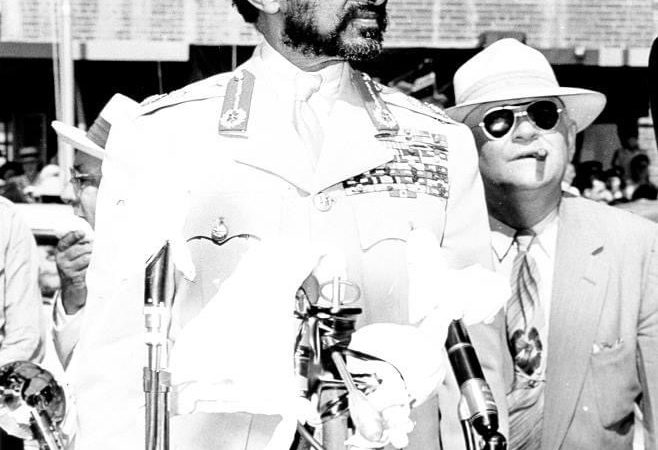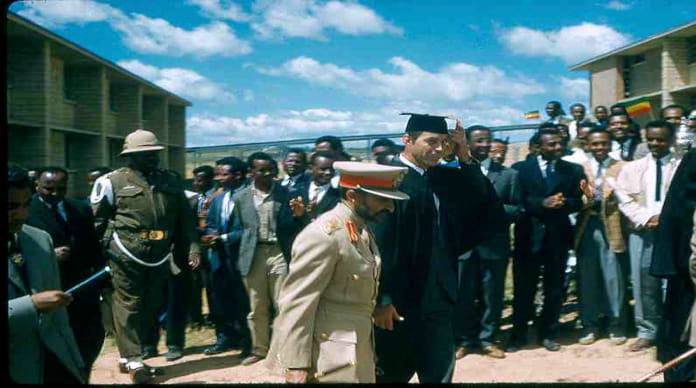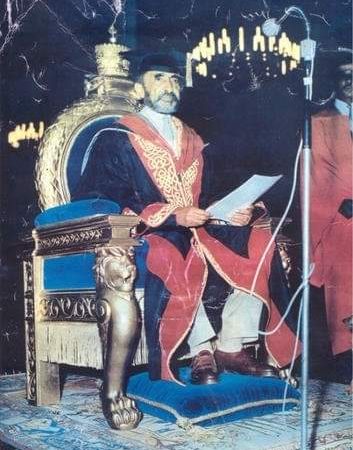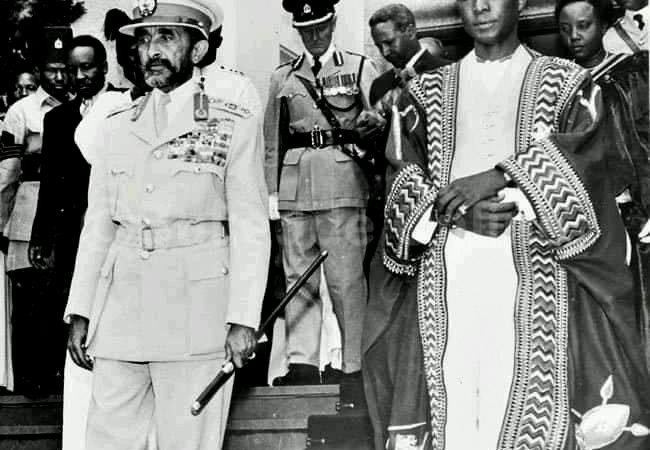Haile Selassie I on International Politics and it’s prinicples

Haile Selassie I was a real diplomat. Therefore International Politics was not something He could just ignore and avoid. Haile Selassie I at all times wanted what’s best for Ethiopia as well as Africa and for all the black nations across the globe.
Therefore, today we’ll take a look at the speech made by HIM Haile Selassie I on International Politics. It is important for us who are of the faith to know the knowledge and history of RasTafari.
However, politics is not one that we of the faith would try to engage in, however it is a reality that is there and therefore at some point must be tackled.
Therefore, it is my duty to share with you the ways in which Haile Selassie I went about dealing with International Politics while still remaining a true Emperor.
So we must seek the teaching of HIM, a learn how to apply our knowledge for the betterment of every man.
INTERNATIONAL POLITICS
Even before introducing Ethiopia to the League of Nations in 1923, when he was Regent and Heir Apparent, Emperor Haile Selassie saw the necessity of Ethiopia’s active role in international politics.
-
Emperor of Ethiopia speaks | Interview with RasTafari
-
May 25 1963: The Organization of African Union headed by Haile Selassie I
Thus he has shaped and pursued a foreign policy in which his country has not remained a mere spectator of the currents of world affairs.
He has played and continues to play an active role in international politics. From the League of Nations, to the United Nations, through to the Nonaligned Conference and the Organization of African Unity,
His Majesty the Emperor has left for Ethiopia an indelible imprint on the course of world political affairs. In the international sphere,
Ethiopia today occupies a respected place in the Council of Nations. As His Imperial Majesty observed, We have won, through Our efforts, Our right to this position.
THREE PRINCIPLES
….. “In matters of foreign relations, We have been ever guided by three basic principles. First is Our deep conviction that, where there is no lack of goodwill,
all international disputes can be resolved through peaceful negotiations, without recourse to violence. This tenet underlies the role which We played in the Suez crisis,
-
The Teachings of HIM: RasTafari speech on International Relations | Wise Mind
-
Haile Selassie I selected speech on the RECONCILIATION WITH ITALY
and it was in implementation of this conviction that, during this last year, We offered Our good offices to mediate in the border dispute between the Republic of the Sudan and the United Arab Republic.
Similarly, We have relied upon this principle in Our efforts to prevent the spread of the fire which threatens the Middle East. An inevitable corollary of this belief is Our firm conviction that all nations,
whatever their political persuasions, can live together in peace. Second is Our unswerving devotion to the principle of Collective Security.
In those early days of 1935-6 when Our country was subjected to the horrors of aggression, We appeared before the League of Nations to plead the cause of Collective Security,
a plea which unfortunately fell on deaf ears. But even today, no better principle can be devised for the maintenance of the peace of the world,
-
Haile Selassie I selected speeches on African Unity, Cornerstone Apr. 29, 1960
-
May 25 1963: The Organization of African Union headed by Haile Selassie I
and the peaceloving nations of the world have begun to come together under this banner. Third, flowing from the principle of Collective Security,
is the necessity, in these anxious days when the major powers are engaged in a frantic arms race, for all countries which have accepted this principle and assumed a share of the responsibility for ensuring the peace of the world,
to become ever stronger militarily. It is in order to discharge Our responsibilities under the principle of Collective Security that we have established the Military Academy at Harar,
to ensure that properly trained officers will lead Our Armed Forces. And in order further to strengthen Our Armed Forces for the defence of Our Empire in time of war,
-
The King of Kings Haile Selassie I speaks more on Peace
-
Bob Marley song ‘War’ was inspired by Haile Selassie I speech
and for ensuring its internal security in time of peace, We have ordered the establishment of an Imperial Territorial Army. As We have stated time and time again,
We are firmly persuaded that the path to guaranteeing the peace of the world lies in supporting the principle of Collective Security and the United Nations Charter,
combined with a progressive reduction of the armaments which are being built up throughout the world. The billions of dollars which are now wasted on this
fruitless effort could with great benefit be diverted into the constructive channels of aid for the economic growth of under-developed countries.” …





